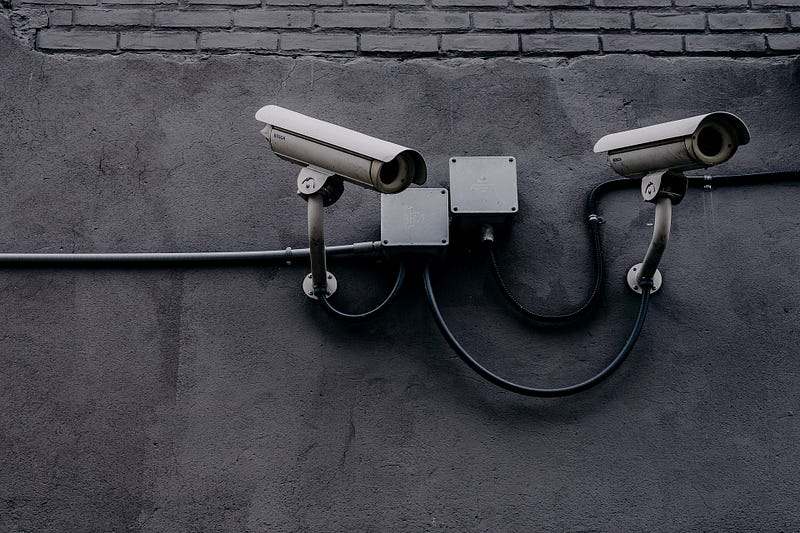Understanding the Importance of Privacy in the Digital Age
Written on
Chapter 1: The Misconception of "Nothing to Hide"
Many people often dismiss concerns about online surveillance with the question, "What are you trying to hide?" This leads to a common belief that if you aren't involved in criminal activities, there is no reason to worry about privacy. The phrase "If you have nothing to hide, you have nothing to fear" is frequently cited to support this view.
However, the reality is more complex. The majority of individuals unknowingly engage in activities that could be considered illegal. Even if you aren’t a criminal, everyone has aspects of their life they prefer to keep private. Consider the implications of invasive actions, such as installing cameras in changing rooms or having your financial details leaked on social media.
The potential for your entire online history to be exposed can be distressing. Even if privacy doesn't concern you personally, it’s important to consider how organizations or governments might misuse personal information against individuals or groups they oppose.
“The more you know about someone, the easier it is to manipulate and control them,” and this often works against the individual's best interests.
Section 1.1: The Need for Privacy
Examining the assertion that there is no need for privacy reveals a fundamental truth: everyone has something to conceal. As Edward Snowden aptly put it, suggesting indifference towards privacy because you have nothing to hide is akin to claiming that you don’t care about free speech simply because you have nothing to say.
Privacy is a natural human need, not limited to those engaging in illegal activities. Most people would feel uncomfortable if someone invaded their personal space, such as rummaging through their belongings at home or accessing their unlocked smartphone. While your personal notes may not be incriminating, they could still be misused in ways that affect your life adversely.
Subsection 1.1.1: The Risks of Data Exposure

Your personal data does not have to be damaging to be harmful. The consequences of exposing private information can range from mild embarrassment to serious repercussions, including potential legal issues. The ability to predict personal characteristics such as identity, health, and political beliefs based on data can lead to intrusive practices.
To protect individual privacy, it’s crucial that everyone receives the same level of security. The absence of privacy can lead to significant societal problems.
Chapter 2: The Broader Implications of Surveillance
The truth remains that knowledge is power. Those with access to your personal data can engage in harmful activities such as identity theft, unfair treatment, or even blackmail. For instance, when you provide sensitive information online, it is essential to ensure it is encrypted to prevent exploitation.
The misuse of data collected by organizations poses a threat to societal wellbeing. Events like the Cambridge Analytica scandal highlight how improperly acquired personal information can influence political scenarios and lead to severe breaches of privacy.
Why Online Privacy Matters Even If You Have “Nothing To Hide”
This video discusses the critical importance of privacy, even for those who believe they have nothing to hide.
Glenn Greenwald: Why Privacy Matters
In this video, Glenn Greenwald elaborates on the significance of privacy in protecting freedom and individual rights.
The potential benefits of data, such as targeted advertising, do not negate the inherent risks associated with extensive data collection. The fundamental right to privacy is essential for a functioning society, allowing individuals to control what information about them is disclosed.
Section 2.1: Privacy as a Fundamental Right
Privacy is closely linked to freedom, and societies leaning toward democratic values generally recognize this connection. The implications of a world without privacy can be seen in dystopian literature, where surveillance is both a symptom and a cause of unfreedom.
Governments and corporations often seize opportunities to monitor individuals, which can have dire consequences for activists, journalists, and dissenters. The danger lies not only in the direct suppression of freedom but also in the self-censorship that arises from fear of surveillance.
Section 2.2: The Consequences of Invasion of Privacy
The fundamental lesson here is that everyone has something they wish to keep private, and preventing individuals from doing so can lead to serious consequences. Privacy is often an undervalued commodity; much like climate change, it’s an issue that lurks in the background without triggering immediate concern.
While it may seem paranoid to worry about privacy, taking necessary precautions can significantly enhance your security. Advocating for privacy rights and utilizing privacy-focused tools can empower individuals to reclaim control over their personal data.
In conclusion, the notion that one has nothing to hide should prompt discussions about the necessity of privacy rather than dismissing it. To illustrate this, consider asking someone to hand over their unlocked phone and allow you to browse through their private information. This simple act can reveal the value of privacy in our daily lives.